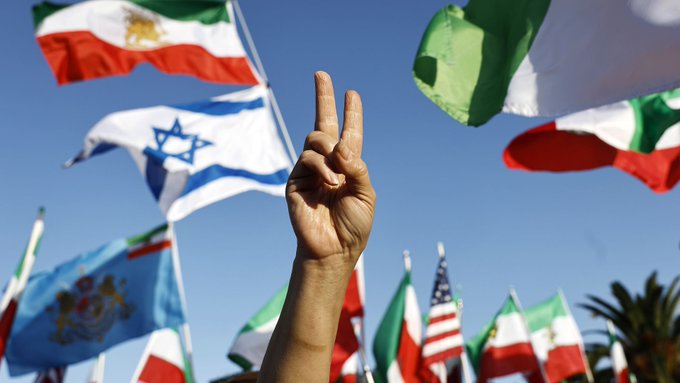After nearly two weeks of escalating hostilities that threatened to engulf the Middle East in a broader conflict, a fragile ceasefire is now reportedly in effect between Iran and Israel. The truce, announced late Monday and brokered with the involvement of former U.S. President Donald Trump and Qatari mediators, comes after a dramatic series of military exchanges, including Israeli strikes on Iranian nuclear facilities and retaliatory missile attacks from Tehran.
The Road to Ceasefire
The latest round of violence began on June 12, when Israel launched a preemptive air campaign targeting Iran’s nuclear infrastructure, citing concerns that Tehran was nearing the capability to develop a nuclear weapon. In response, Iran fired missiles and drones at Israeli territory and, in a significant escalation, struck a U.S. military base in Qatar—though the attack resulted in no American casualties, thanks in part to prior warnings and missile defenses.
Amid mounting casualties and fears of a wider regional war, diplomatic efforts intensified. Trump, who had previously authorized U.S. strikes on three Iranian nuclear sites in support of Israel, took to social media to declare that a “complete and total ceasefire” had been reached. He credited his administration’s pressure and direct negotiations with both sides, as well as Qatar’s crucial role as intermediary with Iran, for the breakthrough.
The Terms and Immediate Challenges
The ceasefire was structured as a phased process: Iran would halt its strikes first, followed 12 hours later by Israel, with a full cessation of hostilities to be declared after 24 hours if both sides complied. Israeli Prime Minister Benjamin Netanyahu confirmed that Israel had accepted the U.S.-brokered initiative, declaring that his country had achieved its objective of neutralizing the immediate threat posed by Iran’s nuclear and missile programs. Netanyahu warned, however, that Israel would respond decisively to any violations of the truce.
Despite the agreement, the ceasefire’s stability was immediately tested. Within hours of its announcement, both sides accused each other of breaching the terms. Israeli officials reported new missile attacks from Iran, resulting in casualties in southern Israel, while Iran denied responsibility and claimed it would only continue military actions if Israel resumed its aggression. Trump, visibly frustrated, publicly rebuked both countries for what he described as “early violations,” stating, “We basically have two countries that have been fighting so long and so hard, that they don’t know what the f— they’re doing”.
International Mediation and Reactions
Qatar’s involvement was pivotal in securing Iran’s agreement to the ceasefire. Qatari officials, acting at Trump’s request, engaged in shuttle diplomacy between Tehran and Washington, ultimately persuading Iranian leaders to accept the U.S. proposal. The White House emphasized that the ceasefire was contingent on both sides refraining from further attacks, with Trump personally calling Netanyahu to underscore the importance of restraint.
The international community has reacted with cautious relief. While the ceasefire has halted the immediate cycle of violence, analysts warn that the underlying tensions remain unresolved. The specifics of the agreement, including the status of Iran’s nuclear program and the potential for renewed negotiations, are still unclear. Early U.S. intelligence assessments suggest that recent strikes may have only temporarily delayed Iran’s nuclear ambitions, rather than eliminating them entirely.
Looking Ahead: Fragility and Uncertainty
Both Israel and Iran have claimed “historic victories” in the aftermath of the conflict, each asserting that they have deterred the other from further escalation. Yet, the mutual distrust and the rapidity with which the ceasefire was tested underscore the fragility of the current pause. Netanyahu has made it clear that Israel will not pursue further attacks on Iran for now, but has left open the possibility of forceful retaliation if provoked.
Trump’s intervention, while celebrated by some as a diplomatic success, has also drawn criticism for its bluntness and the lack of a comprehensive strategy for long-term peace. The coming days will be critical in determining whether this ceasefire marks a turning point or merely a temporary lull in a long-running and deeply entrenched conflict.
As the world watches, the hope is that this fragile truce will hold, sparing the region further bloodshed and opening a window for renewed diplomacy. But with both sides on high alert and the risk of miscalculation ever-present, the prospect of lasting peace remains uncertain.

